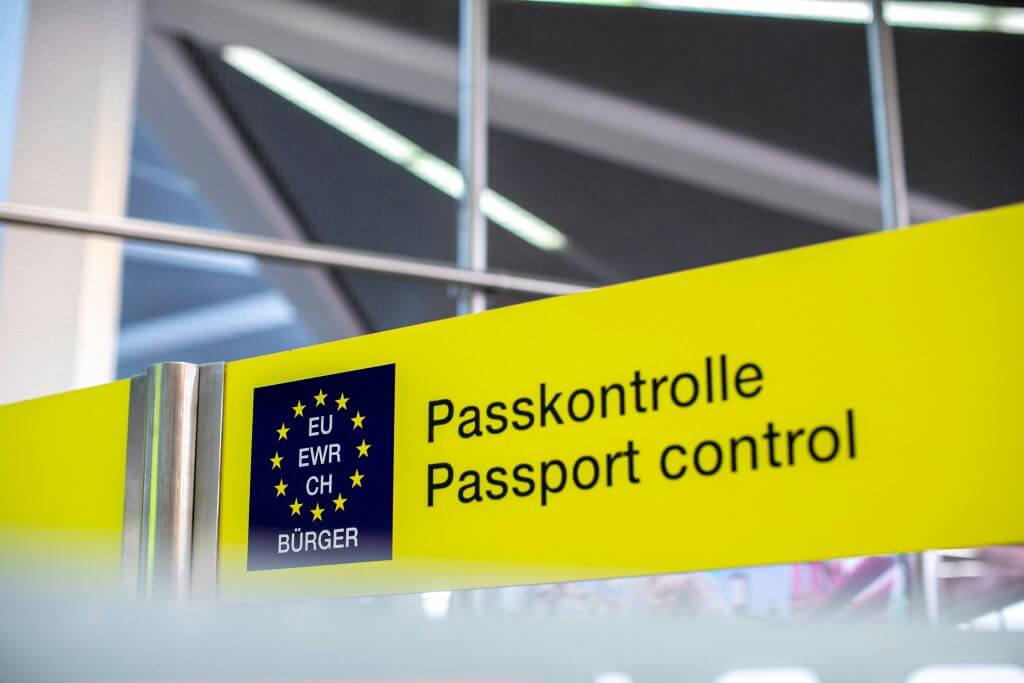Europe currently hosts approximately 27.5 million foreign residents with valid residence permits. This figure reflects the continent’s growing appeal as a destination for international professionals and expatriates seeking new opportunities.
A European permanent residence permit grants you the right to live in another country indefinitely. This status provides access to employment markets, social services, and mobility rights across the European Union. The traditional route requires maintaining a temporary residence for several years. However, specific EU countries now provide accelerated programs that streamline this process significantly.
Malta’s Permanent Residence Program demonstrates this approach effectively. The program requires either purchasing real estate (minimum €375,000) or securing rental property (minimum €14,000 annually). Greece offers another pathway through its Golden Visa program, enabling immediate residence rights, permanent residence after 5 years, and potential citizenship eligibility after 2 additional years.
The statistics support this trend toward European residence. Italy processed nearly 70% of the EU’s 2,861,306 long-term residence permits issued by the end of 2018. These numbers continue climbing as more people explore various pathways to EU residence permits through investment, employment, or family connections.
This guide outlines your complete roadmap to securing European permanent residence in 2025. You’ll discover eligibility requirements, application processes, and practical steps needed to make this important decision with confidence.
Table of Contents
- Top Benefits of Getting EU Permanent Residence
- Ways to Get an EU Residence Permit
- Country-Specific Programs to Consider in 2025
- Step-by-Step Roadmap to Apply for EU Residence
- What Happens After You Get the European Permanent Residence
- European Permanent Residence: Conclusion
Top Benefits of Getting EU Permanent Residence
European permanent residence status delivers substantial advantages that extend far beyond basic residency rights. These benefits fundamentally change your legal position and opportunities across the continent.
Live and work legally in the EU
Permanent residence eliminates employment restrictions after 5 years of continuous legal residence. Your status provides automatic renewal rights and protection from deportation except under serious circumstances. This security allows you to establish long-term plans without the uncertainty of temporary permits.
Employment freedom becomes complete with permanent residence status:
- Employment verification requirements disappear – no need to prove financial resources or health insurance coverage to authorities
- Equal access to employment opportunities as citizens
- Job mobility without residence status concerns
- Business establishment and self-employment rights
The permit automatically renews and provides stability that temporary residence cannot match. You build a secure foundation for your European life without recurring qualification processes.
Visa-free travel across Schengen Area

Your EU residence permit functions as a powerful travel document. Schengen Area residents can travel throughout all 27 participating countries for up to 90 days within any 180-day period without additional visas or permits. This applies regardless of your nationality.
The Schengen Area includes Austria, Belgium, Croatia, Czech Republic, Denmark, Estonia, Finland, France, Germany, Greece, Hungary, Iceland, Italy, Latvia, Lithuania, Luxembourg, Malta, Netherlands, Norway, Poland, Portugal, Slovenia, Slovakia, Spain, Sweden, and Switzerland.
Business trips, family visits, and vacations become seamless experiences. Bureaucratic barriers that restrict non-residents disappear with your permanent residence status.
Access to healthcare and education
Permanent residence grants equal access to essential social services. Healthcare systems open at citizen rates, with full public medical facility access. Portugal exemplifies this approach – any legal resident can obtain a National Health Service user number for medical assistance at public facilities.
European Health Insurance Cards become available to permanent residents registered with both National Health Service and Social Security systems. This coverage extends to temporary stays throughout EU member states.
Education opportunities match these healthcare benefits. Europe’s nearly 5,000 higher education institutions serve 17.5 million tertiary students. Permanent residents gain:
- World-class university and program access
- Domestic student tuition rates in many cases
- Academic and professional advancement opportunities
Pathway to citizenship
Permanent residence serves as the essential foundation for full citizenship. After maintaining permanent resident status for the required period (typically 5-10 years depending on the country), citizenship eligibility opens.
Citizenship represents complete integration, providing voting rights in national elections, passport acquisition, and visa-free access to more than 170 countries worldwide.
Your journey toward citizenship maintains considerable flexibility. Permanent residence status only terminates after remaining outside your country of residence for more than two consecutive years. This provision accommodates international travel and temporary work assignments abroad.
Family members benefit equally from your permanent residence status. They qualify for permanent residence documents after legally residing with you for a continuous 5-year period, creating opportunities for your entire family to establish new lives in Europe.
Ways to Get an EU Residence Permit
Multiple pathways exist to secure your European permanent residence permit in 2025. Each route offers distinct requirements and benefits that align with different personal circumstances, financial capabilities, and long-term objectives.

1. Investment in real estate or funds
Investment-based residence permits, commonly known as Golden Visas, continue attracting international investors despite recent program modifications. These initiatives allow you to obtain residence status through significant economic contributions:
Portugal has restructured its program, eliminating real estate investments while maintaining pathways through €500,000 fund investments or €250,000 cultural preservation contributions. Greece has adjusted its real estate investment threshold from €250,000 to €400,000-800,000 in popular regions. Cyprus provides immediate permanent residence through €300,000 investments in properties, company shares, or investment funds. Malta maintains its property-based approach requiring either purchase (minimum €375,000) or rental (minimum €14,000 annually) plus administrative fees.
These investment programs typically establish permanent residence after 5 years, with citizenship options available thereafter. Most countries avoid requiring continuous physical presence, making them suitable for those maintaining international business interests.
2. Financial independence visa
Financially independent person (FIP) visas provide a direct path to European residence for individuals with stable passive income. These programs eliminate employment requirements while focusing on financial stability.
Portugal’s D7 Visa requires minimal annual income of €9,840 for the main applicant, with additional requirements for family members. This makes it among Europe’s most accessible options for financially independent individuals.
Spain’s Non-Lucrative Visa requires €28,800 annually, while Greece requires €2,000 monthly, and Italy’s Elective Residence Visa demands €31,160 annually. These programs specifically target retirees, remote workers with foreign income, and individuals with substantial investment returns.
4. Starting a business
Entrepreneurship creates another viable pathway to European residence. The EU actively encourages member states to streamline business formation processes, targeting completion within 3 working days at costs below €100.
Portugal offers residence visas for independent professional activities and business creation. Both Hungary and Portugal maintain dedicated programs for entrepreneurs and startup founders, with Portugal requiring the creation of at least 10 jobs after establishing a business.
5. Marriage to an EU citizen
Marriage to an EU citizen provides streamlined residence rights. Non-EU spouses can join their EU partners in any member state where they legally reside. Upon arrival, you must:
- Apply for a residence card within 3 months
- Report your presence to the relevant authorities
- Prove your relationship is genuine
Legal residence for 5 years automatically qualifies you for permanent residence status. You can then remain indefinitely regardless of employment status or income level.
6. Family reunification
Family reunification permits non-EU family members to join relatives already residing in the EU. Eligible family members typically include:
- Spouses or registered partners
- Minor children (under 18)
- Dependent parents or grandparents, in certain cases
Portugal permits reunification for spouses, minor children, adopted minors, dependent ascendants, and minor siblings under the resident’s guardianship. After 5 years of legal residence through family reunification, you become eligible for permanent residence.
7. Employment-based permits
Employment represents one of the most established pathways to European residence. Portugal offers residence permits for subordinate or independent professional activities, requiring a work contract or promise of employment when applying.
The EU Blue Card program targets highly skilled professionals with specialized expertise. After maintaining employment-based residence for 5 consecutive years, you become eligible for permanent residence status, eliminating the need to maintain employment to preserve your right to stay.
Country-Specific Programs to Consider in 2025
Portugal offers compelling residence pathways for international professionals and expatriates in 2025. The country provides multiple visa options that lead to permanent residence status through different qualification routes.

Portugal: D7 and Golden Visa
Portugal’s D7 Visa attracts retirees and remote workers with stable passive income streams. Applicants must demonstrate a monthly income of at least €820 and maintain a clean criminal record. This option requires minimal financial commitment compared to investment-based alternatives.
Application processing typically spans three to nine months, with rejection rates consistently low. The visa appeals particularly to non-EU retirees seeking Portugal’s quality of life without substantial investment requirements.
Portugal’s Golden Visa program has adapted significantly since recent policy changes. Direct real estate investments are no longer valid as of October 2023. The program now centers on:
- Fund investments (starting at €500,000)
- Cultural donations (minimum €250,000)
- Job creation initiatives
The Golden Visa continues performing strongly despite these modifications. 2024 recorded approximately 5,000 new approvals—the highest yearly total ever achieved, representing a 72% increase from 2023. Both visa pathways lead to Portuguese citizenship eligibility after five years of residency.
Upcoming changes to Portuguese Immigration Law
Portugal plans major changes to its immigration and nationality laws effective June 2025. Most applicants’ residency requirements for citizenship applications will increase from 5 to 10 years, while nationals from Portuguese-speaking countries face a 7-year requirement.
The government extended residence permit validity until October 15, 2025, through Decree-Law No. 85-B/2025. The Agency for Integration, Migration and Asylum (AIMA) established two online services to address pending renewal processes.
Family reunification rules have become more restrictive. Applicants must have legally resided in Portugal for at least two years, and only minors can apply from within Portugal—all other family members must apply from abroad. Authorities will implement enhanced security checks for all visa applicants.
These proposed changes primarily affect citizenship pathways rather than initial residency rights. Permanent residence remains available after 5 years regardless of these amendments.
Step-by-Step Roadmap to Apply for EU Residence
Securing your European permanent residence permit requires a structured approach with careful attention to timing and documentation. This roadmap helps you navigate EU immigration systems effectively.
Choose the right program for your needs
Start by evaluating your personal circumstances against available residency pathways. Your financial resources, relocation flexibility, and long-term objectives determine which program suits you best. EU residence permit processing typically takes 4-9 months, making advance planning essential. Each program has specific physical presence requirements—some countries permit minimal stays to maintain residence status.
Complete Due Diligence and background checks
Immigration authorities conduct preliminary Due Diligence checks before application approval. These evaluations cover your financial status, criminal history, and overall eligibility. The thorough vetting process achieves rejection rates of approximately 1%. Countries employ multi-tier verification systems, cross-referencing international databases including INTERPOL and anti-money laundering watchlists.
Select and secure real estate or investment
Investment-based programs require qualifying asset selection as your next step. Reputable advisors help identify opportunities meeting program requirements. You’ll sign preliminary agreements, deposit funds (typically 10% of property cost), and complete transactions before application submission.
Prepare and Submit the Required documents
Your application package must include:
- Valid passport and travel documents
- Proof of financial resources or investment
- Criminal record certificate
- Health insurance documentation
- Proof of accommodation
- Marriage/birth certificates (for family applications)
Attend a biometric appointment and receive a permit
Immigration authorities schedule biometric appointments for photo, fingerprint, and signature collection. This data creates your residence card and verifies your identity. Biometric appointments typically last 15-30 minutes. Following approval, which may require up to 90 working days, you’ll receive your residence permit card confirming your legal status.
What Happens After You Get the European Permanent Residence

Your European permanent residence permit marks the beginning of a new phase with expanded rights and specific responsibilities. This status differs substantially from temporary residency, providing enhanced privileges while requiring compliance with particular obligations.
Understanding your rights and obligations
Permanent residence grants you nearly identical rights as citizens. You receive equal treatment in employment conditions, education access, work-related training, and tax benefits. Your rights extend to social protection and freedom of association. Most importantly, you gain unrestricted access to the entire territory of your host country.
These privileges come with corresponding obligations. Many EU countries require you to carry identification documents at all times. You must also comply with all health regulations issued by local authorities.
Maintaining your residency status
Despite the “permanent” designation, your residence status includes certain conditions. You automatically lose your right to permanent residence after living outside your host country for more than two consecutive years. Maintaining a connection to your adopted country remains essential.
Family circumstances require special attention. Changes in family status through divorce or separation must be reported to immigration authorities promptly. Children under 16 must attend mandatory schooling—failure to comply may result in legal consequences.
When and how to apply for permanent residence
The path to permanent residence typically requires five consecutive years of legal residence. Temporary absences are permitted during this period—up to six months per year or twelve consecutive months for justified reasons like pregnancy, serious illness, or work assignments abroad.
After meeting these requirements, you must apply for a permanent residence document. This certificate confirms your right to stay indefinitely without conditions. The document remains valid for 10 years and requires renewal before expiration.
Tax residency and financial planning
Establishing residency brings distinct tax considerations. You’re generally considered tax-resident in a country where you spend more than six months annually. As a tax resident, your worldwide income becomes taxable in your host country.
Many countries maintain double taxation agreements to prevent paying taxes twice on the same income. Understanding these arrangements proves crucial for proper financial planning.
Path to EU citizenship
Permanent residence serves as the stepping stone toward full citizenship. The specific naturalization timeline varies by country, though typically requires maintaining permanent resident status for additional years beyond the initial five-year residence period.
Citizenship provides additional rights unavailable to permanent residents, including voting privileges and passport acquisition. Residence permits may still require renewal after specific periods (usually 5-10 years), and failing to meet ongoing conditions could result in revocation.
European Permanent Residence: Conclusion
European permanent residence permits offer substantial opportunities for international professionals seeking stability and mobility across the continent. This guide has outlined multiple pathways available to you – investment programs, financial independence visas, employment-based permits, and family reunification options. Each route serves different personal and financial circumstances.
The advantages of permanent residence status extend well beyond basic residency rights. Legal employment freedom, unrestricted Schengen Area travel, access to healthcare and education systems, and eventual citizenship eligibility make this status valuable for thousands of applicants annually.
Portugal remains particularly attractive for expatriates considering its D7 Visa accessibility and reformed Golden Visa program. Recent legislative changes across Europe emphasize the importance of staying current with program requirements and acting decisively when opportunities become available.
The application process requires systematic preparation. Selecting the appropriate program, completing due diligence requirements, preparing documentation, and attending biometric appointments become manageable when approached methodically.
Your obligations continue after permit approval. Maintaining residency status requires understanding your rights, meeting physical presence requirements, and fulfilling tax obligations. These responsibilities form essential components of your European resident experience.
European permanent residence requires patience, strategic planning, and careful attention to regulatory details. The rewards – stability, professional opportunities, mobility rights, and potential citizenship – justify this significant life decision. This roadmap provides the foundation needed to pursue European permanent residence successfully in 2025 and beyond.
The founding of Madeira Corporate Services dates back to 1996. MCS started as a corporate service provider in the Madeira International Business Center and rapidly became a leading management company… Read more




